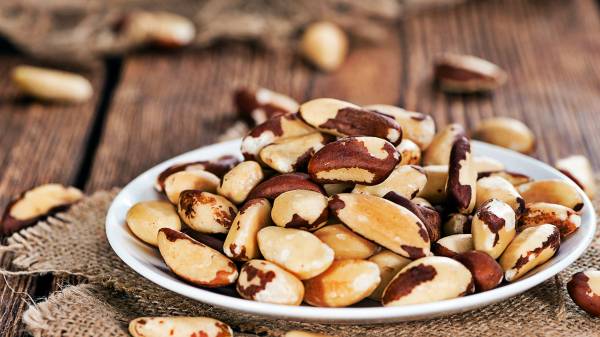There are many substances that are often claimed to be testosterone boosters. Are these claims valid, and what should you be looking for in a testosterone boosting supplement? One such substance that is often mentioned is present in many of the top testosterone boosting supplements is selenium. Let’s have a closer look at what it’s all about.
Selenium is a compound that can be found naturally in many places. It is found in water, and in the soil, and is in surprisingly large amounts in Brazil nuts. Selenium is a known anti-oxidant, and plays a part in our metabolic process. But is there any real evidence that selenium helps boost testosterone?
Low Testosterone Levels
Testosterone is an important hormone in the human body, vital for both males and females. For females, it helps to maintain their reproductive tissue. However, in males it serves as their primary sex hormone, playing a vital role in the development of their reproductive tissues. It also encourages their secondary sexual characteristics. However, as men age, their levels of testosterone begin to slowly decline. In fact, around 5 million men in the United States are currently battling low levels of testosterone (male hypogonadism) and this is not just attributed to aging (1).

According to the Mayo Clinic, factors that can contribute to low testosterone levels include obesity, medication, injury to the testicle, certain inflammatory diseases, cancer treatment, pituitary disorders and HIV/AIDS.
If one is suffering from low levels of testosterone, symptoms include:
- A decreased sex drive
- Erectile dysfunction
- Hair loss
- Infertility
- Low energy levels
- Poor memory
- Mood swings
- Smaller testicle size
Selenium and Testosterone – Evidence
Let’s start by saying that there have been studies into whether selenium is an active testosterone boosting compound. For example, a study into men attending a fertility clinic in Nigeria provided some interesting results.
The study took 50 infertile men and 20 fertile, all between the ages of 25 and 50. The study looked at levels of testosterone, selenium and zinc. It found that between the two control groups, the levels of all three substances were notably different.
What’s important here is that there was a strong inference between selenium and testosterone in both groups, especially the infertile men.
Another study took place using 468 sterile males. This study concluded that selenium – when used in conjunction with a compound called N-acetyl-cysteine – led to an increase in the levels of semen produced in the control group.
These are just two examples of a number of scientific studies that have been carried out as to the effects of selenium on testosterone production, and there have been many positive results.
So, why is testosterone boosting so important, and what should you do to aid the production of testosterone?
Testosterone and Older Men
As we age, the processes that drive our body slow down. The production of testosterone naturally becomes less prevalent as you get older, and we’re not talking ‘old men’ here. Indeed, testosterone production can slow down considerably into your 30s, which is not something you want if you are looking to lead a healthy daily life, and continue to enjoy your sex life.

This is one reason why many men turn to testosterone boosters. Another is that when working out, healthy levels of testosterone help, and many men who frequent the gym take compounds or supplements that boost testosterone production.
Selenium is a common element in all the best testosterone boosters. However, Brazil nuts are also a great source of selenium. A single Brazil nut will contain around 50mcg of the mineral. The daily recommended intake is 55mcg for the average male. Thus, you can see just how potent the nuts are when it comes to selenium.
Selenium food sources also include oysters, sardines, egg yolks and grass-fed beef. If you are deficient of the mineral, you can consider the aforementioned foods as part of your diet.
Selenium and health
Aside from helping to boost testosterone levels in men, there are plenty of other benefits that selenium can provide for the human body.
Firstly, as it is an antioxidant, selenium helps to protect the body from the harmful effects of free radicals by producing the enzymes selenoproteins, which serves to protect the cells against premature aging (2). This then lowers the risk of neurodegenerative disorders, cancers and heart disease.
Secondly, hypothyroidism is a disease whereby the thyroid gland doesn’t produce enough thyroid hormone. This can then lead to weight gain, insomnia, constipation and depression. However, increasing your intake of selenium can help to thwart this. This is because the thyroid gland contains the highest amount of selenium than any other organ in the body.
Naturally Boosting Testosterone Levels
Aside from increasing your selenium intake, there are other natural and safe ways in which you can boost your testosterone levels.
Strength training is a great way to increase your testosterone levels. One can also consume more protein-rich foods like salmon and nuts. Additionally, managing high stress levels will also help to maintain your testosterone levels. Cortisol is known as the stress hormone and when it is too high, it may affect the levels of testosterone in the body. Listening to music, meditating or even forest bathing are all great ways to combat high levels of stress in your body.
Also, getting enough sun so that you can maintain your levels of vitamin D is another way in which to keep your testosterone at a healthy level. It’s also important to get enough quality sleep, at least 7 to 8 hours as not doing so can affect your testosterone levels (3).
Conclusion
There is plenty of evidence that selenium does help boost levels of testosterone, especially in men who are deficient in the element. You can include selenium in your regular diet or you can take it in conjunction with a testosterone-boosting supplement. The recommended dosage is a maximum of 55mcg per day – a little more than your average Brazil nut contains!



![women [longevity live]](https://longevitylive.com/wp-content/uploads/2020/01/photo-of-women-walking-down-the-street-1116984-100x100.jpg)










